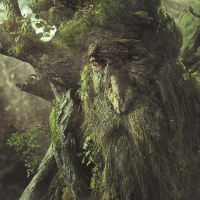The Man in the High Castle (1963) is an alternative history novel by American writer Philip K Dick depicting a nightmare world divided by Germany and Japan, winners of the second World War in an alternate timeline from our own. Set in 1962, fifteen years after an alternative ending to World War II, the novel concerns intrigues between the victorious Axis Powers as they rule over the former United States, as well as daily life under the resulting totalitarian rule. The story features a “novel within the novel” comprising an alternate history within this alternate history wherein the Allies defeat the Axis (though in a manner distinct from the actual historical outcome). A hypothetical Axis victory in World War II is a common concept of alternate history, the second World War being one of the two most popular points of divergence for the English language alternative history fiction genre (the other being the American Civil War). As such, The Man in the High Castle (which has recently been adapted into a popular and critically acclaimed series by Amazon) has much in common with other fictional alternative histories, such as Swastika Night, Fatherland and Dominion.
The Dark Tower
27 JulAs a novelist, Stephen King needs no introduction. He is perhaps the bestselling, most widely read horror author of all time and among living writers he has no equal in any genre in terms of success, popularity and influence. What is perhaps less well known is that King not only writes fantasy novels, as well as the horror for which he is best known, but he is also an avid reader and fan of fantasy fiction. It was in fact an early reading of Tolkien’s Lord of the Rings that led in part to the creation of King’s own fantasy epic, The Dark Tower series. Far from being a mere side interest The Dark Tower actually stands at the heart of King’s imaginarium – as he has said on many occasions, this series is not only King’s magnum opus, it is the glue that binds together his entire literary output. In his own mind every single story that King has written is connected, even if there is no evidence in the story itself of this connection, and this makes The Dark Tower a very intriguing series indeed for any self-respecting King fan. Incorporating themes from multiple genres, including fantasy, science fantasy, horror and westerns, The Dark Tower has almost as many sources: the poem Childe Roland to the Dark Tower Came by Robert Browning, Arthurian legends, the films of Sergio Leone and the aforementioned Lord of the Rings have all, at one time or another, been cited as influences on King. In spite of this, The Dark Tower is one of the most original, compelling and downright frightening works of fantasy ever written. It is also, even eight books later, far from finished.
S M Stirling’s Emberverse
20 DecThe ‘Emberverse’ or ‘Change World’ is the setting for a series of post-apocalyptic novels written by S M Stirling which depict the events following a worldwide cataclysm that causes electricity, guns, explosives, internal combustion engines and steam power to stop working. There are two sets of novels in S M Stirling’s fictional universe. The first, beginning with Island in the Sea of Time, tells of an electrical storm centred over the island of Nantucket which transports it back in time from the 1990s to 1250 BC. The stage is then set for a fascinating contrast (and conflict) between the people from the present and the past, their technology, culture and attitudes. This in itself is a brilliant concept and the Nantucket trilogy has all of the best features of the work of Stirling (who is an amateur military historian). For me, however, it is outshone by the second set of ‘Change’-related novels, which start with Dies the Fire. These tell the other side of the story i.e. what happens to the world that Nantucket island left behind when it is suddenly returned to a medieval level of civilization. The Nantucket trilogy’s central conceit of transporting people from our own world to another time and place is familiar from everything from The Chronicles of Narnia to Buck Rogers in the 25th century. However, I find the concept of people from our own world and time trying to deal with effectively being returned to the middle ages much more interesting and original – at least the way Stirling does it.
















